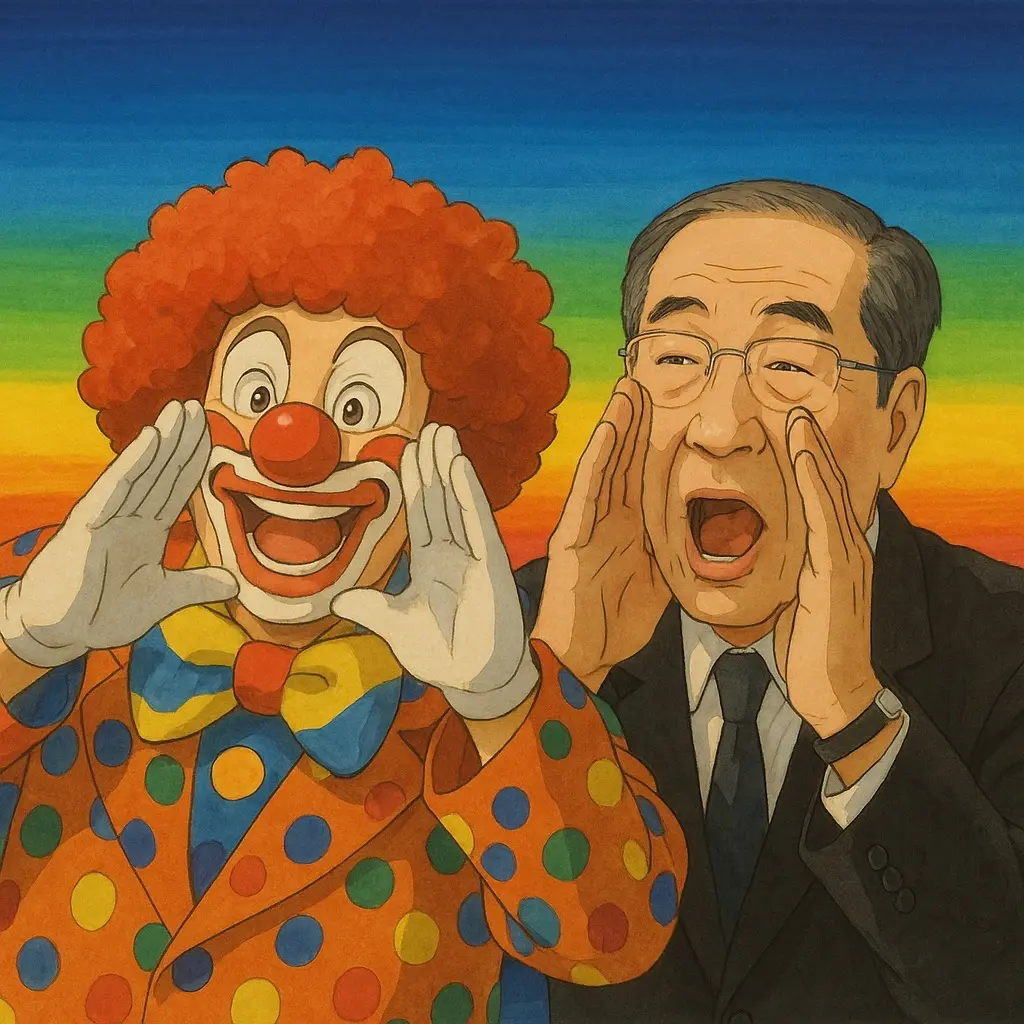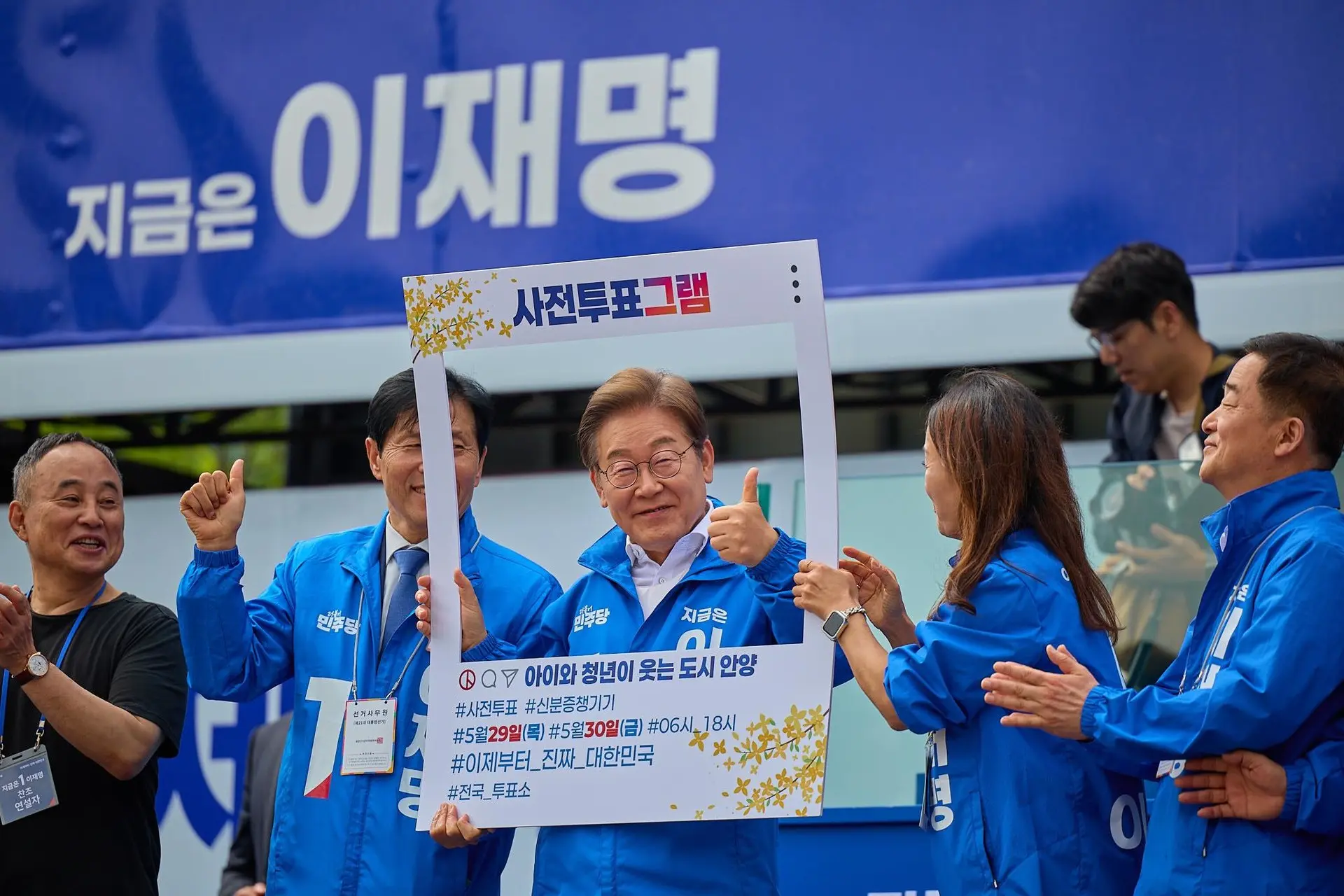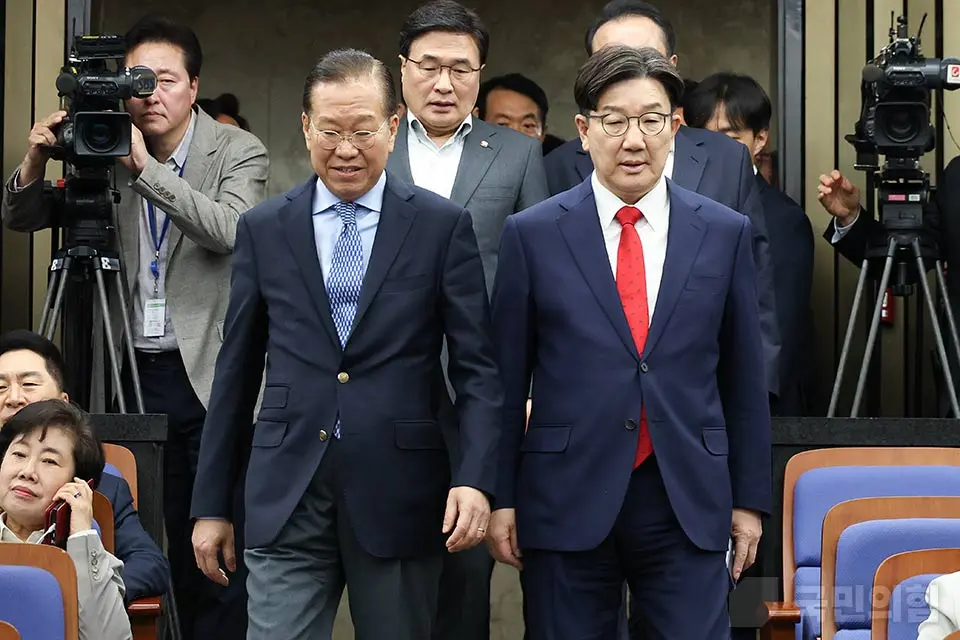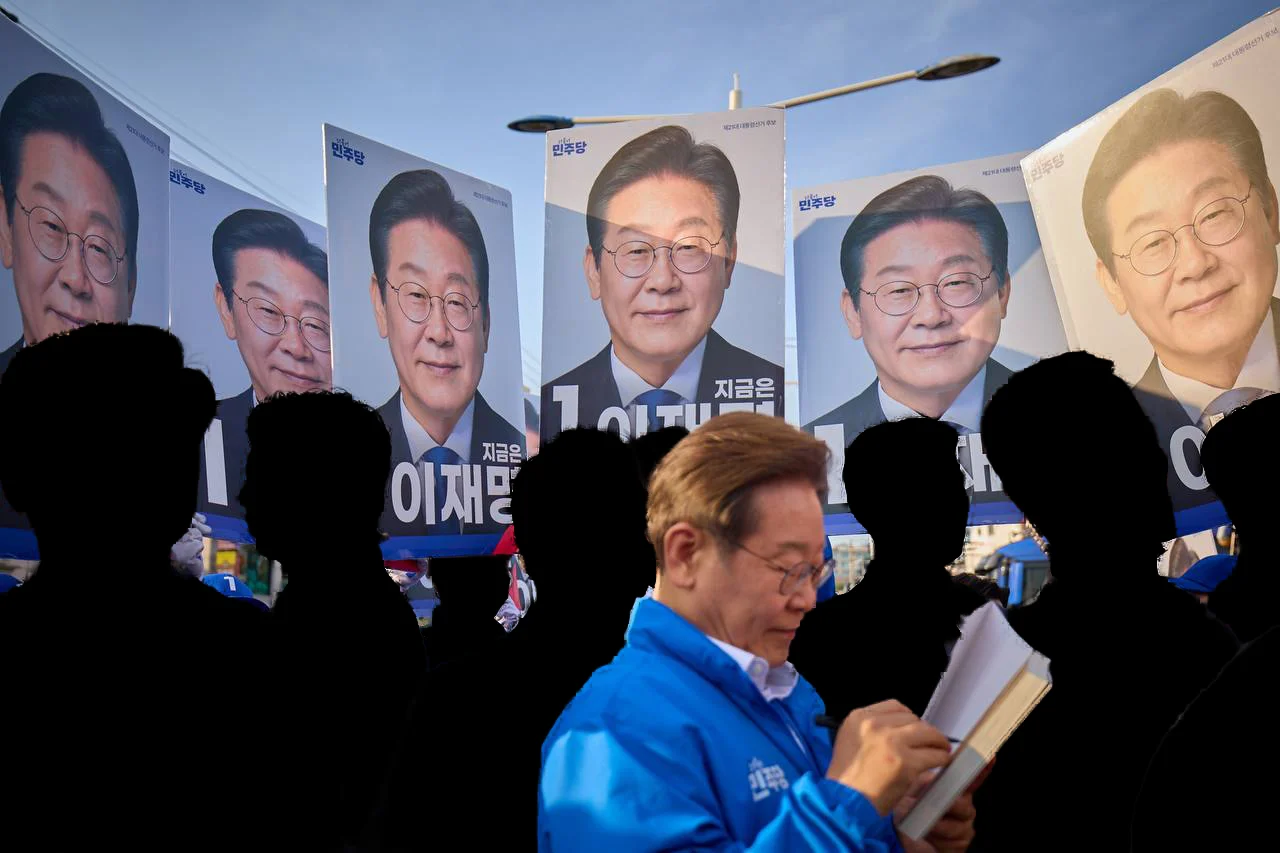A technocrat ends his career as a clown; ROK’s one-party future?

Han Duck-soo: veteran technocrat’s career ends in farce
May 18th National Cemetery in Gwangju is a shrine of democracy every politician with ambition should visit. No wonder Han Duck-soo, the former Prime Minister and acting president who just stepped down in a bid to become the next real President, chose to visit here as the first thing after announcing his candidacy.
A crowd blocked Mr Han’s path to his first photo op as a presidential candidate. Civil organizations in the southwestern city, having been politically aligned with Minjoo for a long time, often act like a gatekeeper, literally, by denying conservative politicians the photo ops they need to be seen as champions of democracy. No surprises here, too, as some see Mr Han as an accessory to Yoon Suk-yeol’s short-lived coup attempt.
Truly unexpected was Mr Han’s reaction.
“I am from Honam, too! We must love each other!” Han Duck-soo pleaded to the crowd, stressing his place of birth belongs to the same region as where the crowd is. Outdated regionalism, hand trumpet, and love… ticks all the boxes for apex cringe.
It was practically old technocrat’s last service to the nation, generating a plethora of memes.
An old technocrat’s last service to the people: pic.twitter.com/kXUMgqOmTn
— Subin Kim (@SubinBKim) May 10, 2025
Often in the terminal stage of their career, technocrats daydream about entering politics. They already know a thing or two about running a government. They can smile and shake hands. More importantly, they are not politicians. Koreans hate politicians so much that every presidential election draws several seasoned technocrats in.
What they don’t understand is, however, that more than half of what they have done and what they believe they can do actually comes from their office, not from themselves. “When they salute to you, they do to your rank, not the person you are,” I remember one training officer saying to my platoon in the Officer Candidate School.
In the highly disciplined, military-like office culture in South Korea, leadership often boils down to demanding more to their subordinates and delivering more to their bosses. In politics, however, everyone’s got their own agenda. Sometimes just running their own team can be beyond their decades-honed leadership skill.
Once they migrate to the world of politics from bureaucracy, everything changes while the backdrop appears to stay the same. No more bureaucratic red carpets their subordinates rolled out carefully everywhere they visit. Now you’re one of the corrupt politicians. People, at least some of them, will hate you, and they won’t hide it from your presence.
Far from realizing that they’ve got to start over from scratch, they still believe there’s a red carpet rolled out for them which is rightfully theirs. Mr Han’s uber-cringe moment stemmed out of this delusion. Even his team, who can write glib, lofty statements, couldn’t get him prepped for this very expectable situation.
Mr Han’s last strategic failure also arose from this red carpet hallucination. He missed the People Power Party primary, so a sensible strategic movement would be steer clear from the former ruling party for a while and try to absorb Minjoo splinter groups and other minority forces. A united front against Lee Jae-myung is necessary, but he has to earn it on his own. Consolidating with PPP’s candidate Kim Moon-soo should have been the climax of the drama.
It didn’t cross his mind that demanding candidate consolidation right after the party primary is over would be the last thing voters would like to see from a technocrat who’s been working for the wrecked government until the last minute.
After his victory, Mr Lee will probably come after Mr Han in the name of settling the rebellion. (I believe this was in part why Mr Han decided to run.) He might have upheld his honor as a technocrat had he finished his career as acting president. Now, losing both honor and retirement security with the botched bid for the presidency, the memes are all that’s left for him.

South Korea’s One Party Future: Matthew Effect on the PPP and Minjoo
In the half-baked attempt to bring Mr Han into a united front, the PPP hit the new low. The party leadership tried to kick out the candidate its members had nominated in the lousiest way possible until the party members voted to shoot it down.

What were they thinking? It doesn’t make sense when you see it as nominating its presidential candidate—well, it is about nominating the presidential candidate, but party insiders have a different set of interests.
The party’s nominated candidate will have a significant influence in rebuilding the party including its leadership after the election. For party insiders, getting a party nomination for local and general elections is far more important than winning a presidential election. Their job depends on this.
They didn’t want Han Dong-hoon to be the candidate because there’s no way Mr Han, who now positioned himself clearly as anti-Yoon, would grant them party nominations for the next elections. They wanted Han Duck-soo because a political novice is much easier to manipulate.
There are two choices when a company faces a downturn. You venture out to find a breakthrough, or you cling to what you’ve already got. What is happening inside the PPP clearly shows us it has taken the second option. In some constituencies like Gangnam and the southeast Daegu-Gyeongbuk (historically known as “TK”), a nomination from the party alone is a sure-fire way to get elected. For a while, it would manage to occupy a third of the parliamentary seats. Not the best of times for conservatives, for sure, but it will be fine for most of the party elite.
But how long? The demographic changes in the last decades have been unfavorable for conservatives and this trend is set to continue. Until the 1990s, conservatives had an innate advantage as its southeastern heartland—with the TK as its center—had much more population with the abundant jobs cultivated by military dictatorship—most of whose leadership hail from the region—than the Minjoo lineage’s poorer southwest Honam region.
As the new millennium dawns, however, the situation began to change. The greater Seoul area vacuumed up people with its promise of prosperity, and since 2019, the capital area has become home to more people than the rest of the country. The migrants who seized the economic opportunities tend to adopt a middle-class mindset, and Minjoo did much better in garnering their support. In contrast, PPP’s support base is shrinking—in its better days, the conservative party could win support not only rich Gangnam landlords but also poorer small business owners with their platforms, but they lost touch with their former support base.
The adverse demographic changes to conservatives, coupled with their incompetence in adapting, suggest the future of South Korean politics is going to look similar to that of Japan, not western countries.
Some western observers who watched clips of Yoon supporters rallying in these days worry about the rise of Korean far-right. I disagree. People often interpret what they see happening other countries they don’t know well with their own country’s context superimposed. (The prime example is western media’s coverage of Korean feminist movement, but that’s not the topic for today.) But the contexts are very different.
In order for a radical political movement to not only survive but thrive, there should be 1) issues that people have strong opinions but feel they cannot openly discuss—like immigration, and 2) charismatic figures like Trump. Korean far-right has none. There are indeed issues in South Korea that could fuel to radical movements, but it requires a shrewd politician with sharp political instincts. I don’t see any potential Jordan Bardella or Alice Weidel in Korean politics today. (The PPP has far inferior youngsters.)
Thus, the mid-left majority bloc Minjoo and its affiliated parties have established since 2020 could persist longer than one might imagine, or be even systemized—like Japan’s Liberal Democratic Party. Korea’s party politics has never been on par with the west and Japan, but Minjoo has a much stronger party than conservatives do now. And it will have both the President and the parliamentary majority for about three years after Mr Lee wins the election.
The Matthew effect will hit the PPP hard. There’s no reason to believe the current PPP strongholds will hold in a long-lasting Minjoo dominance. Korea’s tax system is highly centralized, with less than 30% of total tax revenue going directly to local governments, which means even the conservative heartland like TK will have to give in in time if Minjoo can maintain its dominance both in the parliament and the central government for a long time.
Not good news for democracy, but I try to be a “glass-half-full” guy. LDP’s decades-long rule also brought good things to Japan: stability and predictability. LDP strategists also popularized the concept of human security and Indo-Pacific to the world. Since the democratization, South Korea has had no such leadership on the world stage despite the economic presence, let alone a comprehensive global strategy. With enough time in dominance, Minjoo might come up with something at last.
Downside Risks
There are downside risks, too. Although having never abandoned “democratic” in its name throughout its lineage, Minjoo has little respect for the basic principles of modern democracy. Its “reform” on the prosecutors during the last days of the Moon administration brought a significant chaos in criminal justice system with which Mr Yoon may have benefited, and it’s now coming after judges. Under the new Lee administration, Minjoo may attempt the Mexican-style judiciary reform.
Minjoo insiders still cling to the cold-war leftist worldview that is not only obsolete but also detrimental to envision the future of the republic, especially regarding their views on North Korea. Despite what he tries to portray himself, Mr Lee has little relationship with student activism (and human rights), so I initially thought he may have a more pragmatic view on North Korea though he is involved in one of the most outrageous North Korea-related scams.
What he said during a campaign speech made me think again:
Lee Jae-myung's view on North Korea is closer than I thought to that of "unification activists." A Gemini translation of a news report (with the original). pic.twitter.com/SplUk4xD6v
— Subin Kim (@SubinBKim) May 20, 2025
Due to the nature of this election (i.e. who started it), this is the game Minjoo can’t lose. However, it’s a bad luck for Minjoo to have one of the least competitive candidates running the show. He’s really bad at playing a great politician persona. His inferiority complex prevents him from accepting mistakes and moving on rather than doubling down on his weird “hotel economics” and losing points as a custodian of the nation’s economy. Mr Lee lost to a political novice last time, and this time a rival candidate who believes in the “rigged election” conspiracy theory and hasn’t apologized for Mr Yoon’s coup attempt is closing the gap in polls to a single-digit margin.
A narrow win may humble Mr Lee and Minjoo and work as an antidote to the downside risks, but his questionable personality suggests otherwise.
